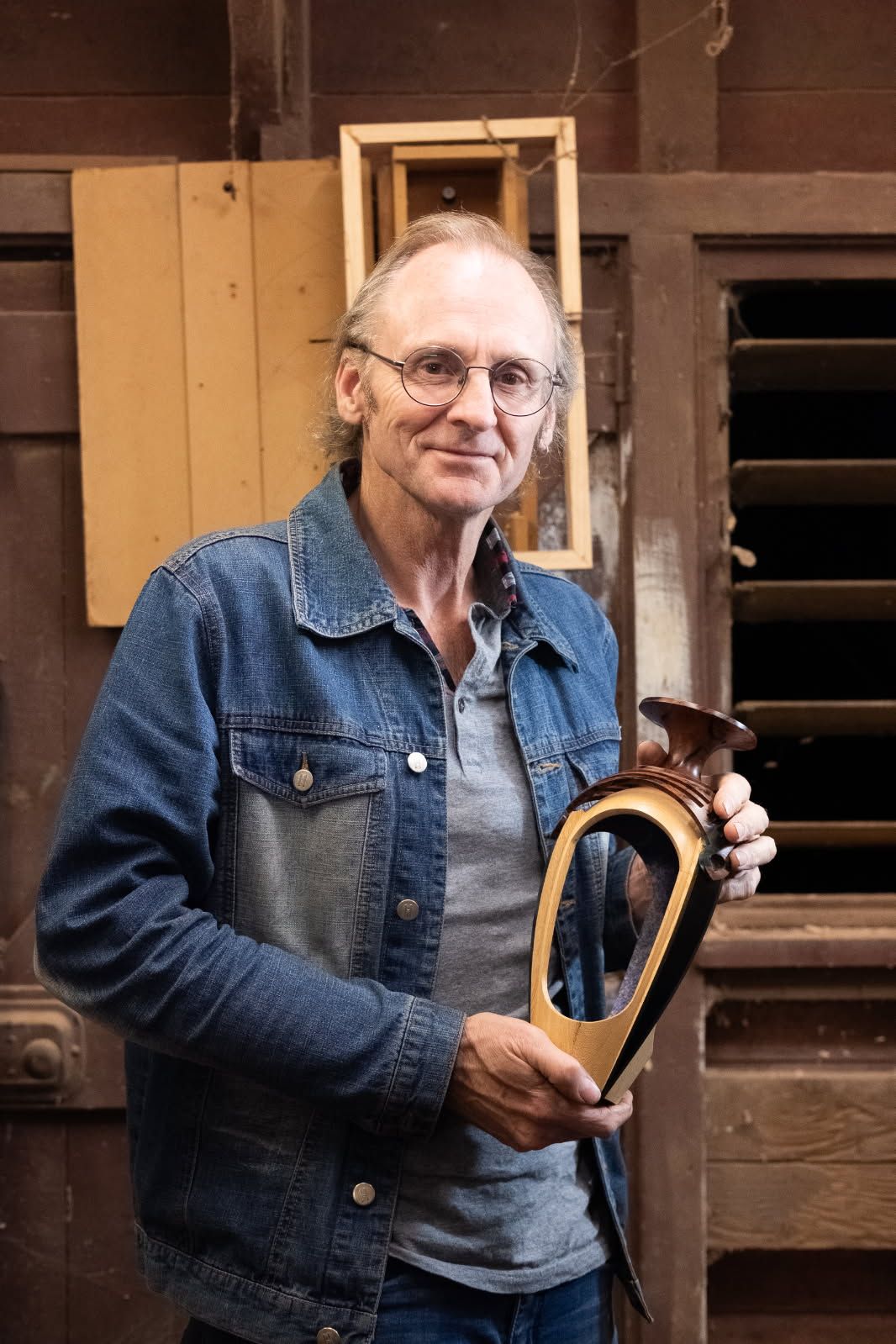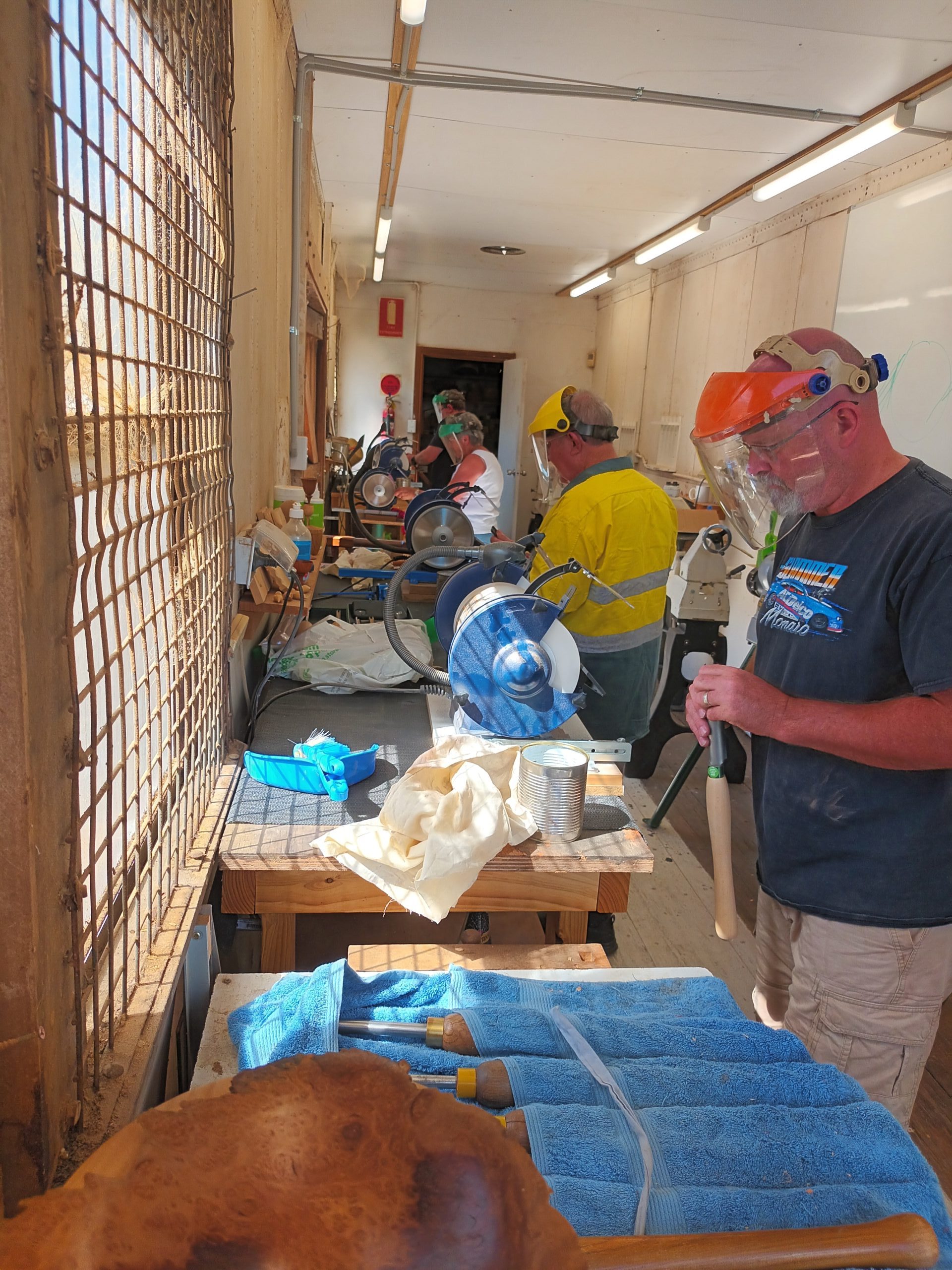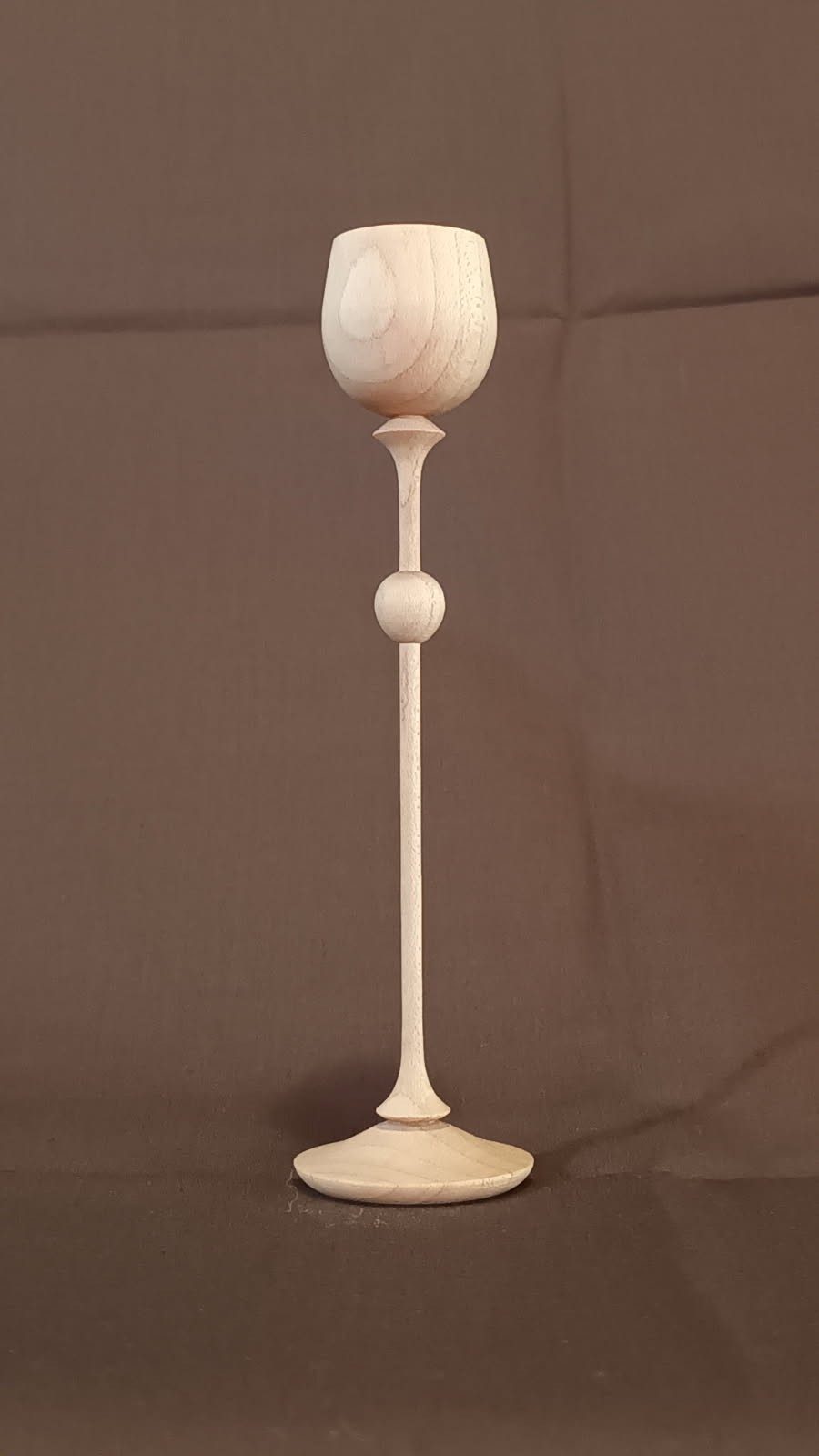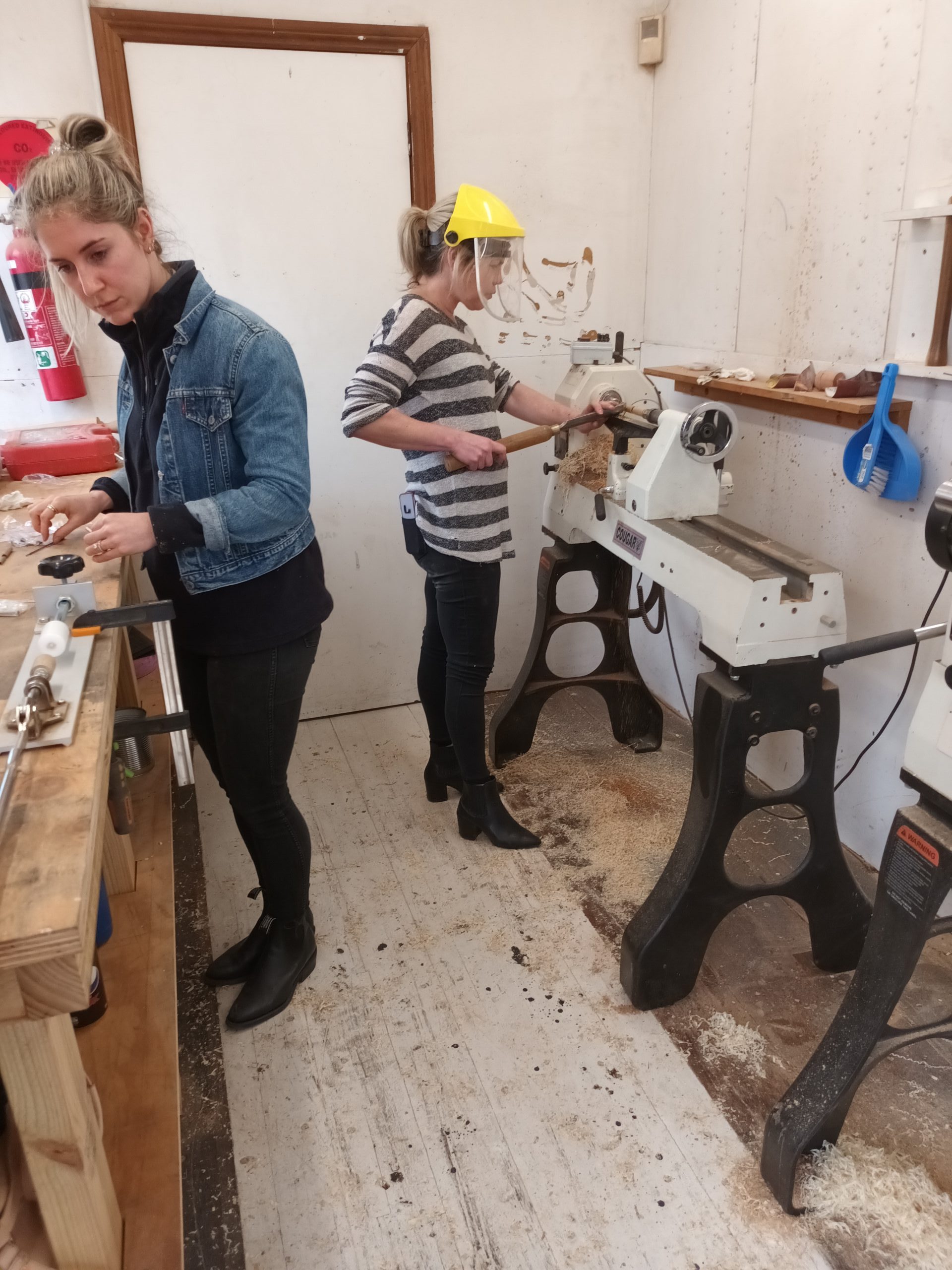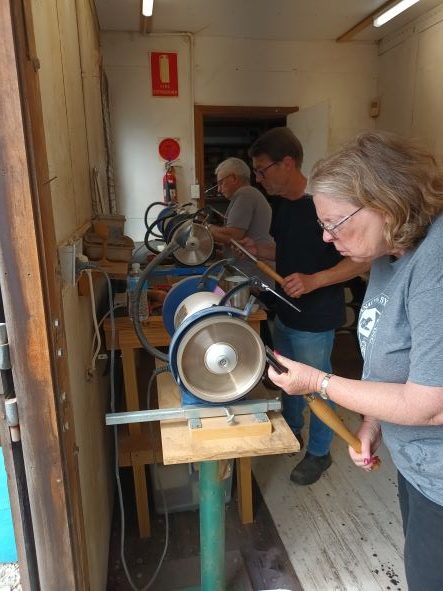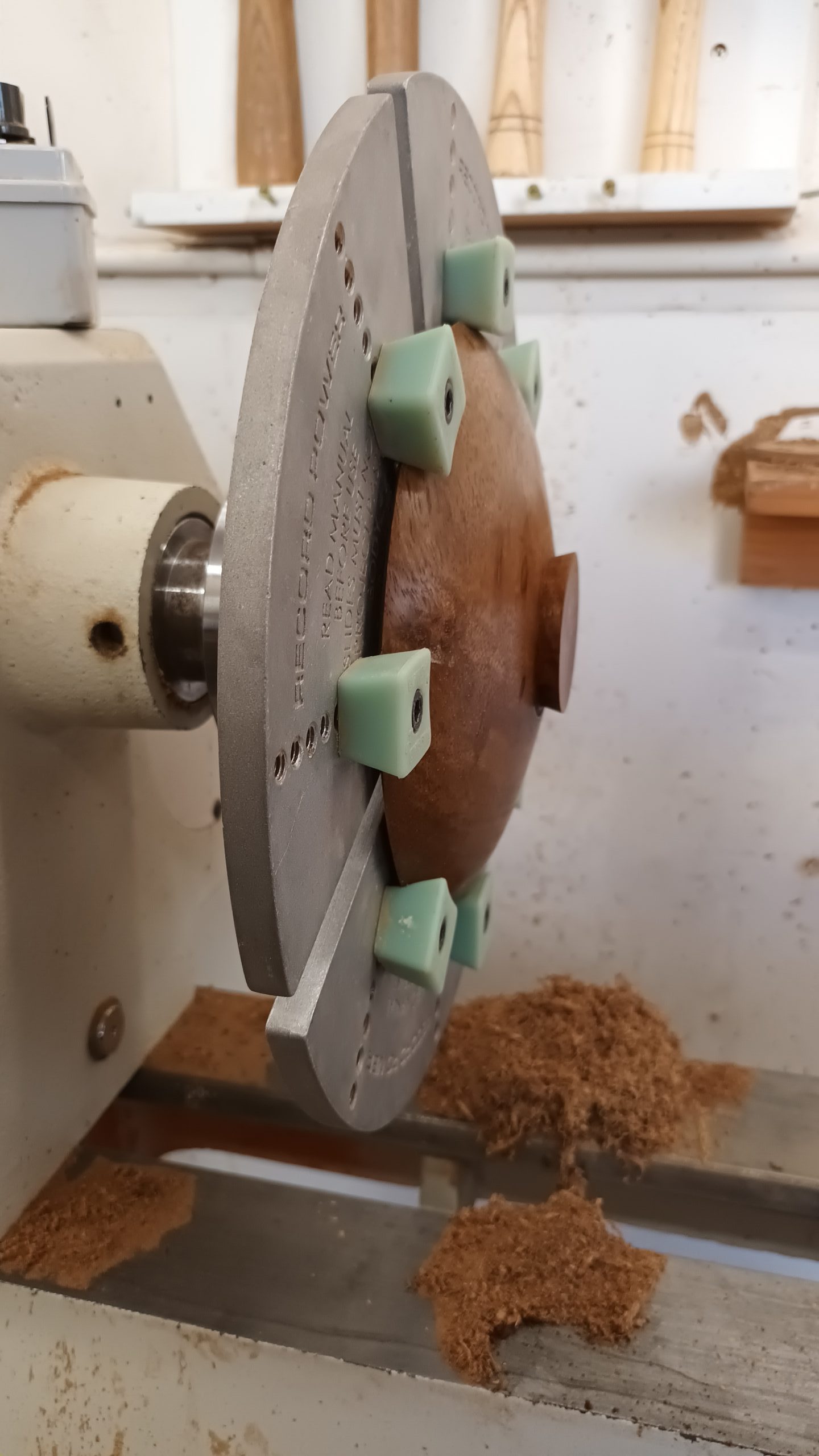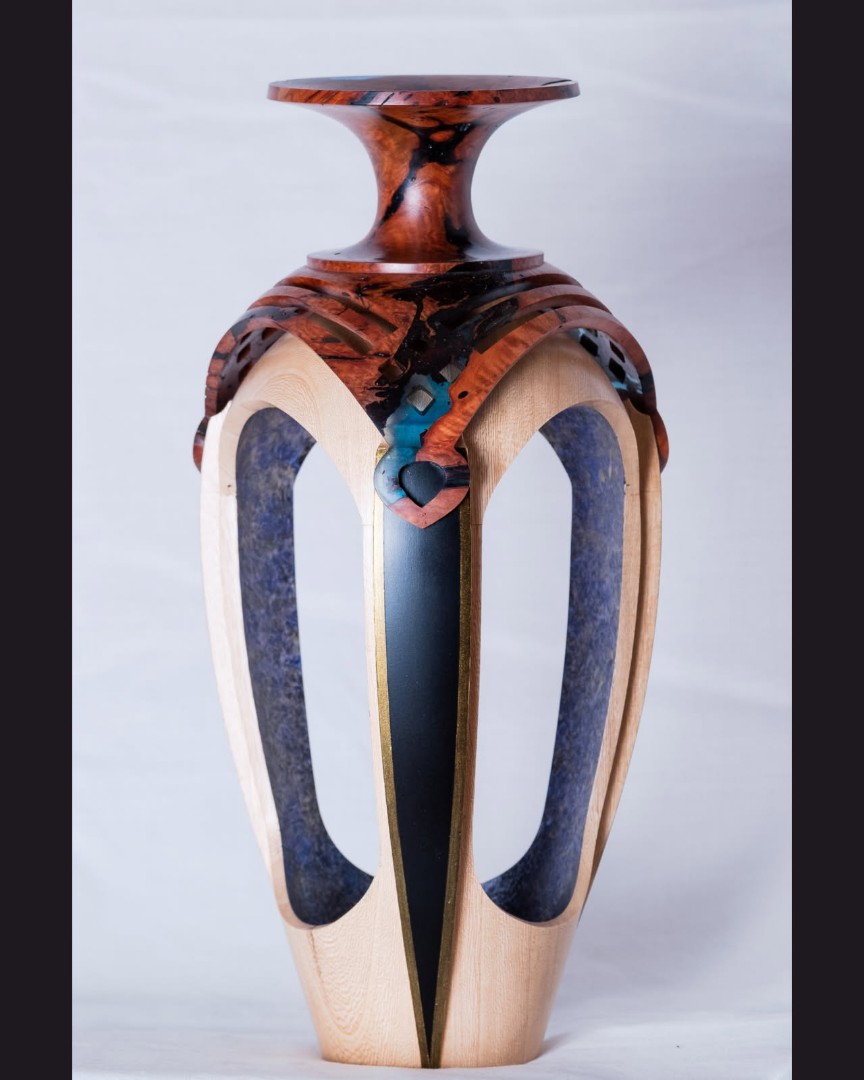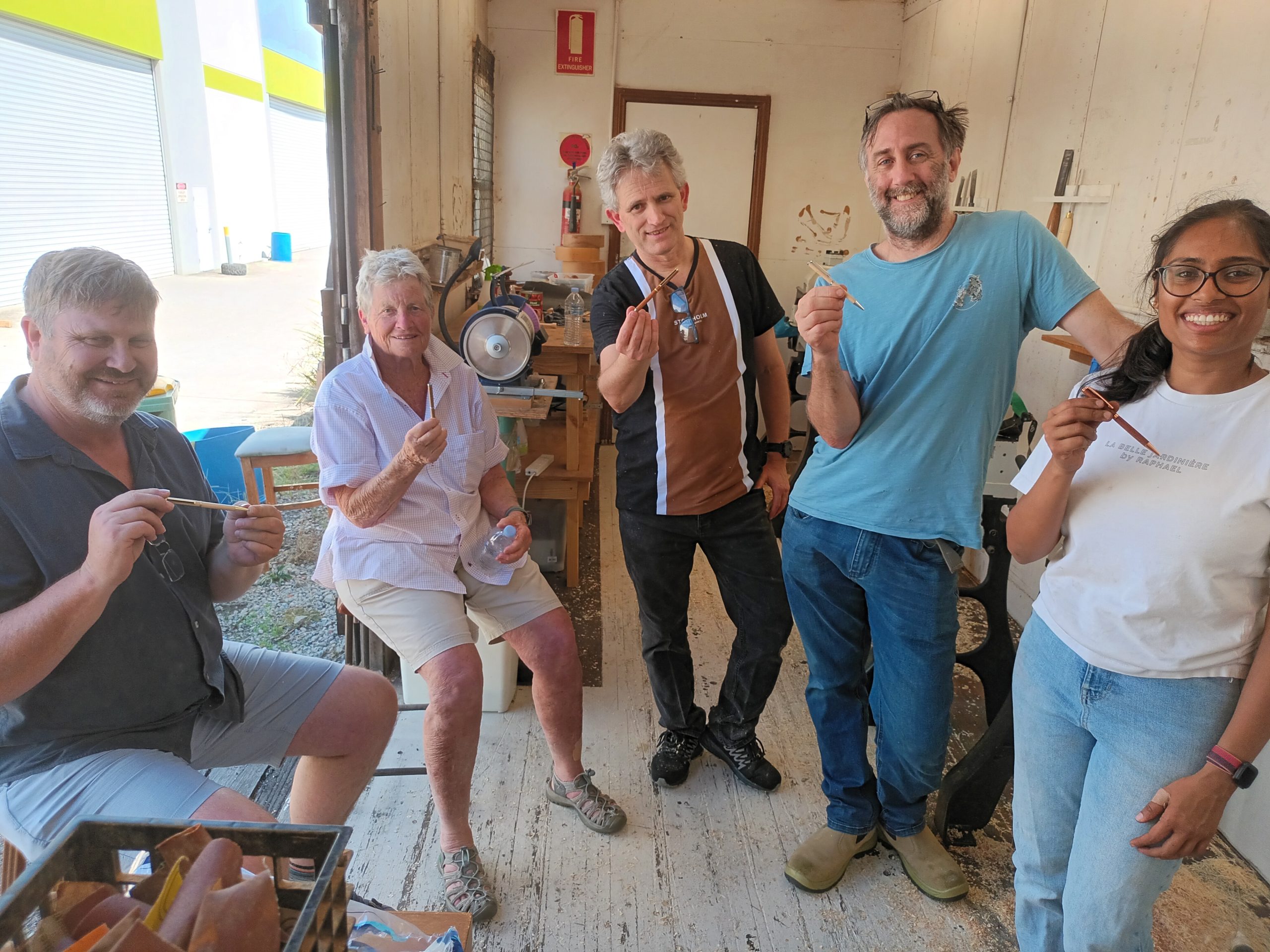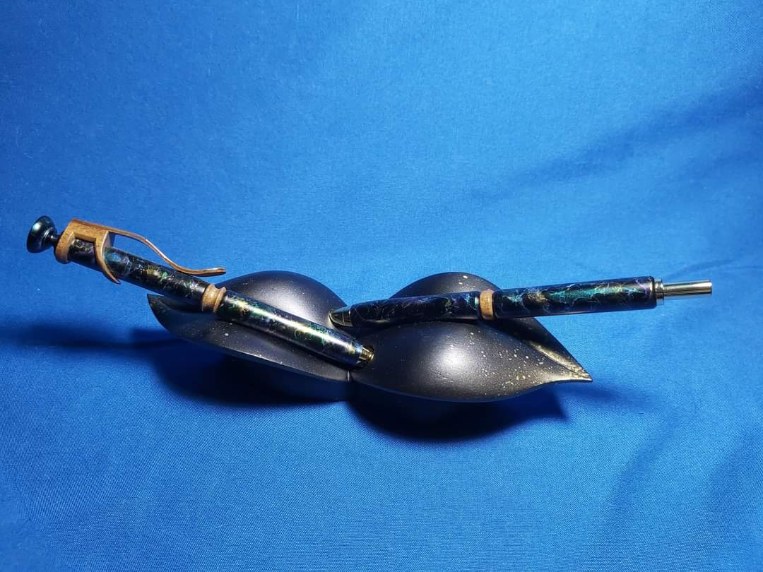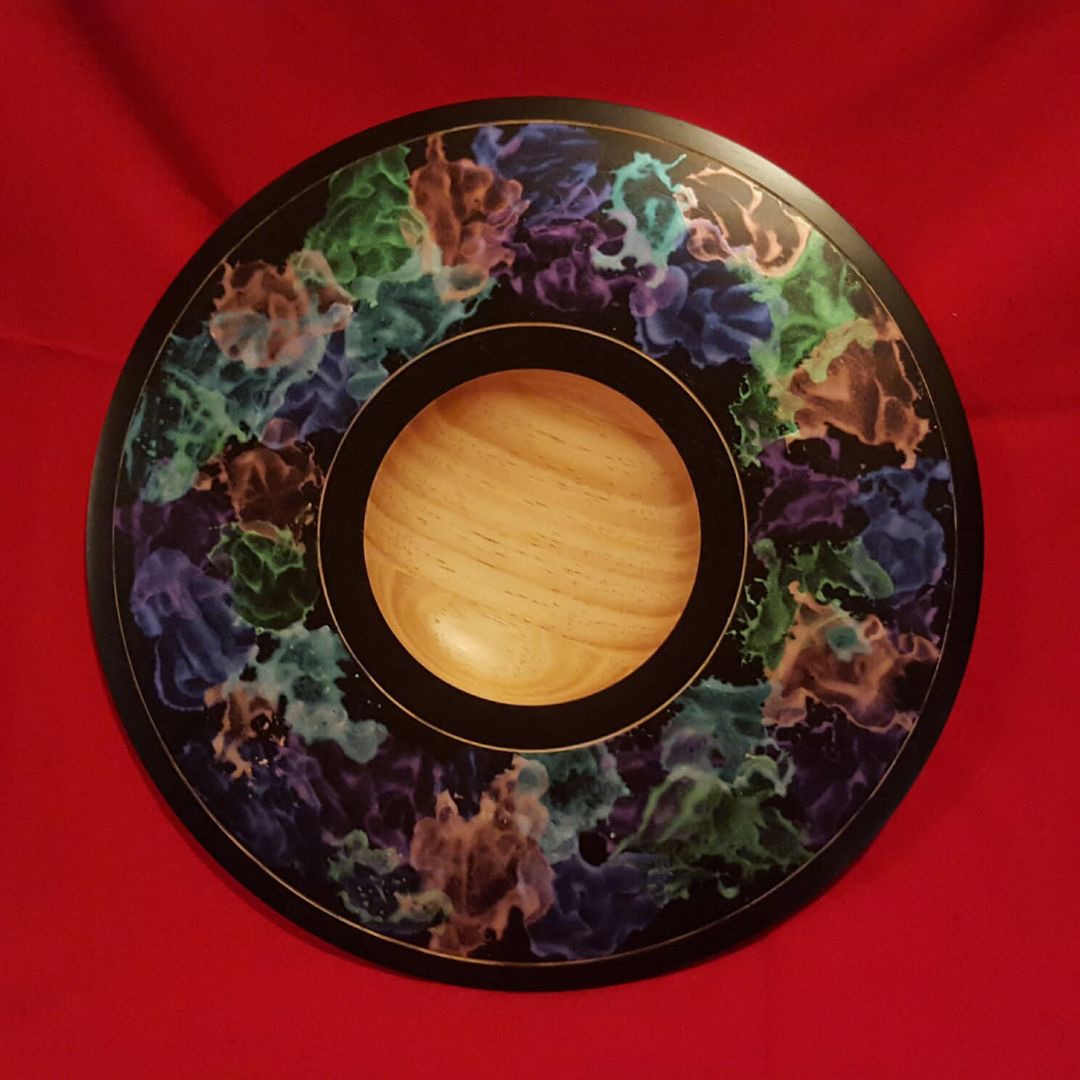Unlock the Art of Woodturning with a Master Craftsman!
Ready to turn your passion for woodwork into beautiful, functional art? Join Brendon Venner—a professional furniture restorer with over 20 years’ experience and a Certificate III in Woodturning from NSW TAFE. Having trained under renowned masters George Hatfield and the late John Ewart, Brendon brings real-world expertise and a true passion for sharing his skills.
Why Choose Woodturning Classes at Trend Timbers?
- Expert Instruction: Learn from an industry veteran who has helped countless beginners and advanced turners achieve their woodturning goals.
- Work with Exquisite Timbers: Get hands-on experience with a stunning variety of exotic woods you won’t find in the average workshop.
- Master Safe, Effective Techniques: Enjoy a step-by-step, structured learning path that builds your skills and confidence at every session.
- Prioritised Safety: Gain essential safety knowledge and best practices for operating a lathe, so you can create with confidence.
- Finishing Touches: Discover the secrets of professional wood finishing—including the proper preparation and flawless application of waxes and oils.
- Ongoing Support: Even after your class, Brendon is available to answer questions and provide invaluable technical and product advice.
- No Hidden Costs—All-Inclusive Value! The single course fee covers everything: expert instruction, quality tools, beautiful timbers, finishing supplies, and all safety gear. Just book your spot and dive in—no surprises!
Don’t miss your chance to learn from the best and create something truly unique.
Ready to get started? Check out our latest course dates at Trend Timbers and secure your place today!
Module 1: Introduction To Woodturning - 2 Day Course
Participating in this module helps maintain our strong safety record while giving students essential foundational turning skills. These basic techniques are crucial for success in more advanced woodturning courses.
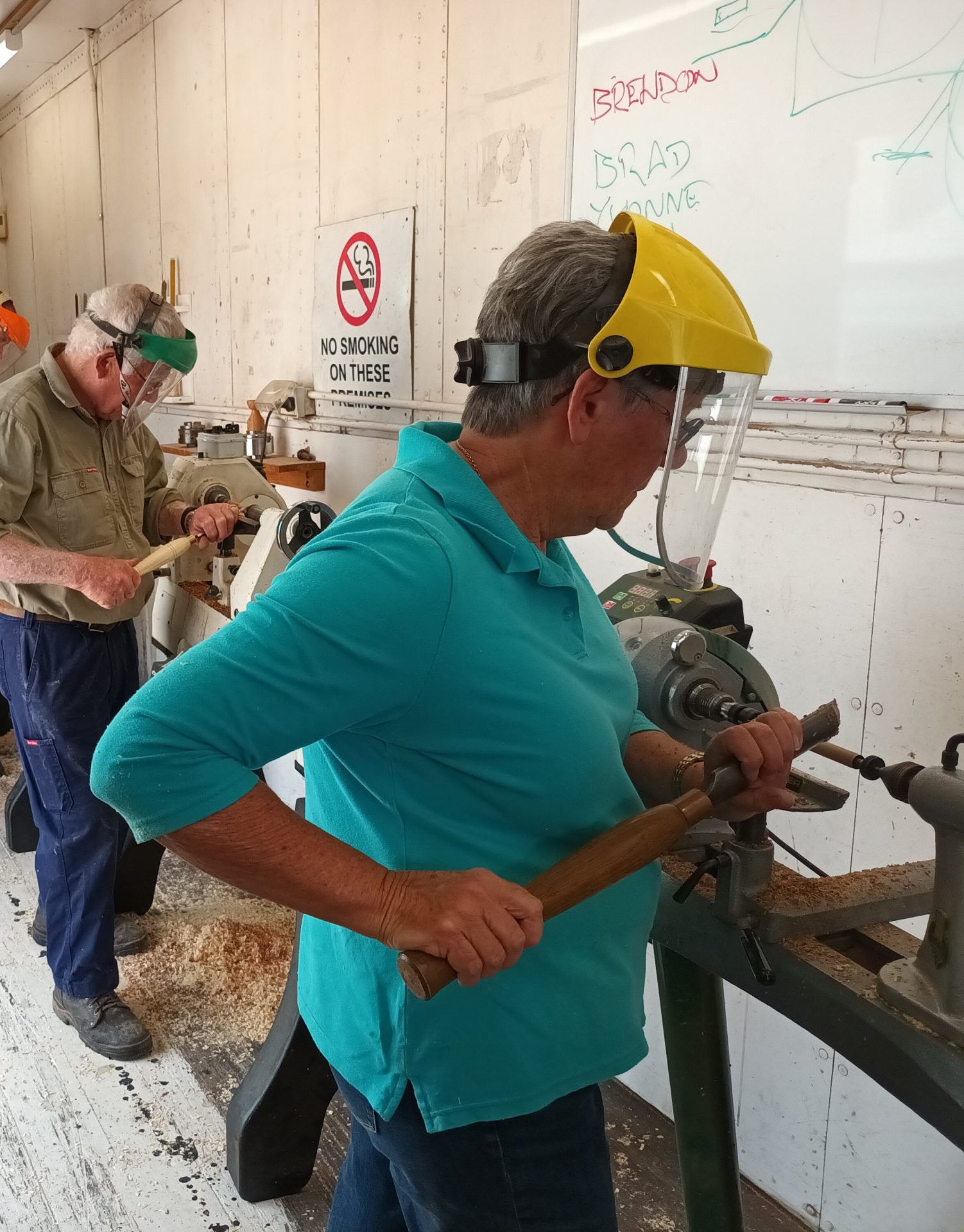
Day 1
This course is designed for beginners with little or no prior woodturning experience. The primary goal is to develop core skills for woodturning safely, focusing on turning between centres and basic faceplate (bowl) techniques.
Each exercise builds on the last to help you learn proper techniques and key knowledge. After a brief discussion of essential theory, we’ll quickly move to hands-on activities.
By the end of Day 1, each student will have made a wooden pen and a reversible candle holder.
Day 2
On the second day, we focus on faceplate turning, specifically making a bowl. Students will learn not only how to prepare and turn a bowl but also about sourcing and seasoning timber, methods of work holding, and techniques for sanding and finishing.
We’ll also cover the importance of proper tool presentation and cutting direction, so you can create high-quality work with less sanding required.
At the end of Day 2, every student will complete at least one bowl—more if time allows.
Module 2: Bowl Turning - 2 Day Course
This module focuses on developing core bowl-turning skills, introducing students to various work-holding devices and key principles of bowl design. Students will craft bowls in multiple styles from timbers such as Mahogany, Myrtle, and Tasmanian Blackwood, and will experiment with different finishing techniques to enhance their projects.
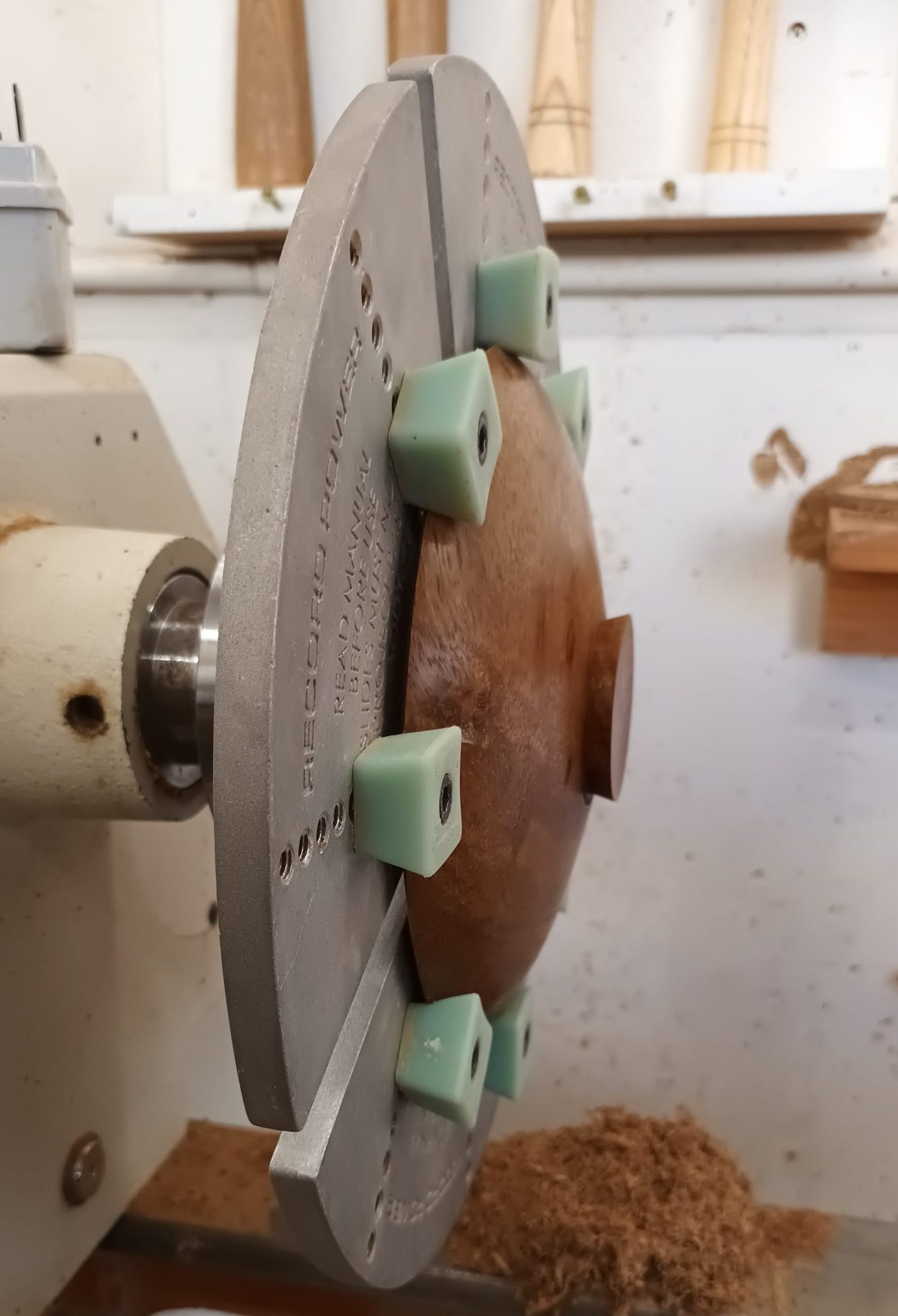
This module offers an immersive exploration of bowl turning, focusing on developing essential practical skills for students at various experience levels. You’ll learn a range of techniques for safely and effectively shaping bowls, with hands-on instruction in the use of different holding devices and specialized tools. The curriculum also covers key aspects of bowl design, guiding you through the fundamentals of form, function, and aesthetics so you can confidently produce work that is both technically sound and visually appealing.
Throughout the course, you will complete multiple bowls in a variety of styles, working with a selection of beautiful native and exotic timbers such as Mahogany, Camphor Laurel, Myrtle, New Guinea Rosewood, and Tasmanian Blackwood. Emphasis is placed on finishing methods; you’ll gain experience applying friction polishes, waxes, and oils to enhance each piece. Whether you’re aiming to expand your turning repertoire or simply enjoy the process of crafting unique wooden bowls, this module provides the skills and knowledge to help you create work you can be proud of. No prior completion of “Module 1: Introduction to Woodturning” is required, making this an ideal choice for both new and returning students.
Module 3: Between Centres Turning - 2 Day Course
This course develops advanced spindle turning skills by focusing on traditional techniques for working between centres, including detailed use of roughing gouges, spindle gouges, and skew chisels. Students will create a variety of practical and decorative items, such as tool handles, kitchenware, and toys, to reinforce techniques like shaping beads, coves, compound curves, and precise end-grain cutting.
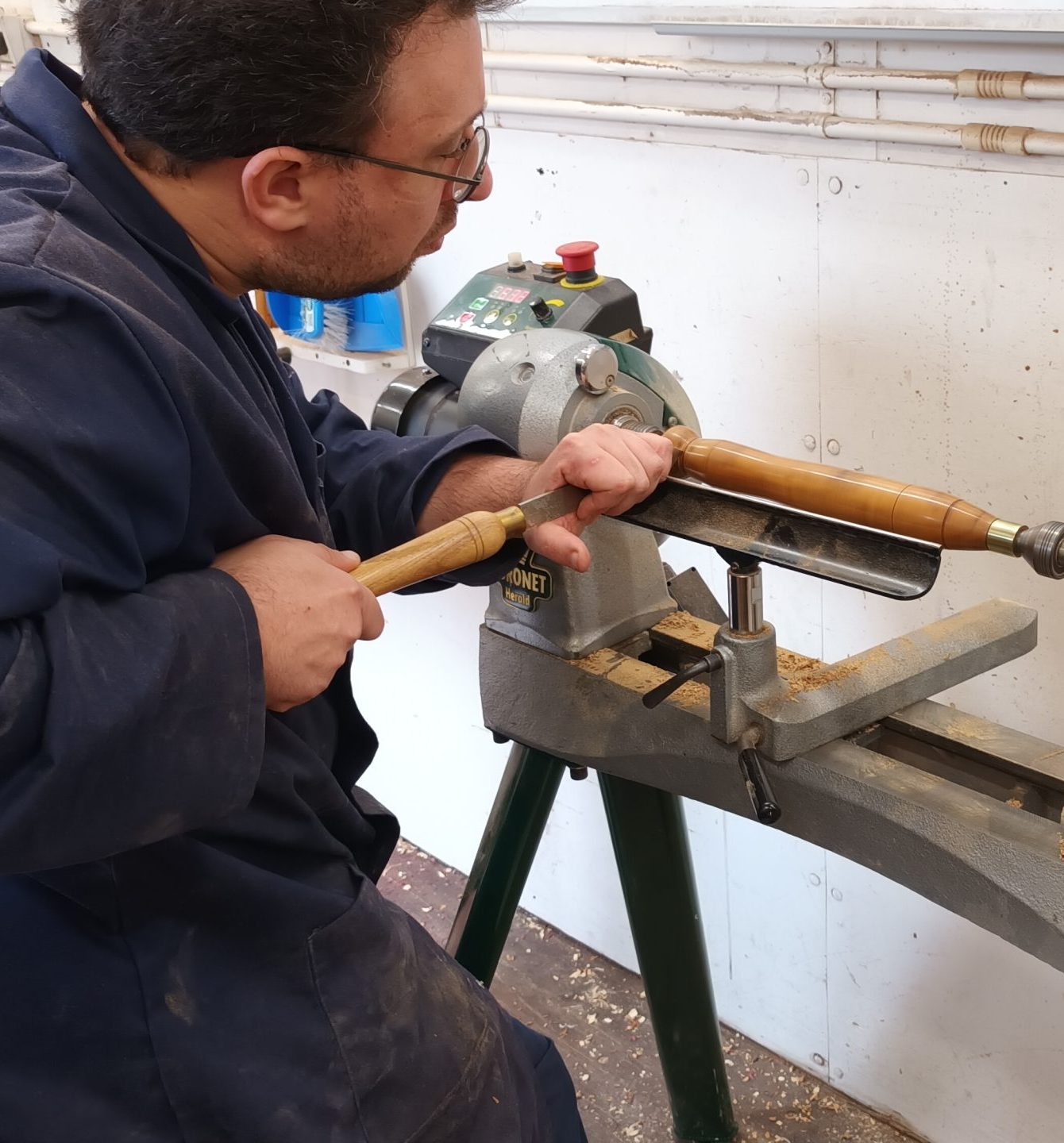
This course is designed for students eager to refine their abilities in turning between centres with a focus on mastering traditional woodturning techniques. Building on foundational skills introduced in Module 1, participants will receive thorough instruction in the safe and effective use of essential tools, including roughing gouges, spindle gouges, and skew chisels. The curriculum places particular emphasis on developing control and precision while creating classic woodturning shapes such as beads, coves, and compound curves. Students will also learn to shape pommels from square stock, cut accurately across end grain, and form detailed beads adjacent to square edges—skills vital to advanced spindle turning projects.
As practical experience is central to this module, students will complete a series of useful and decorative items, such as a custom turning tool handle, brad awl, garden dibber, rolling pin, spatula, ornate door wedges, wine bottle stopper, and spinning top. Each project is carefully selected to reinforce specific techniques and encourage creative problem-solving as students gain confidence with both the tools and the wood. By the end of the course, participants will have developed a repertoire of traditional spindle turning techniques and an impressive collection of hand-crafted items. Completion of “Module 1: Introduction to Woodturning” is required prior to enrolling in this course, ensuring that all students have the essential background knowledge for a safe and rewarding learning experience.
Module 4: Free End Turning - 2 Day Course
This course develops advanced spindle turning skills by focusing on traditional techniques for working between centres, including detailed use of roughing gouges, spindle gouges, and skew chisels. Students will create a variety of practical and decorative items, such as tool handles, kitchenware, and toys, to reinforce techniques like shaping beads, coves, compound curves, and precise end-grain cutting.
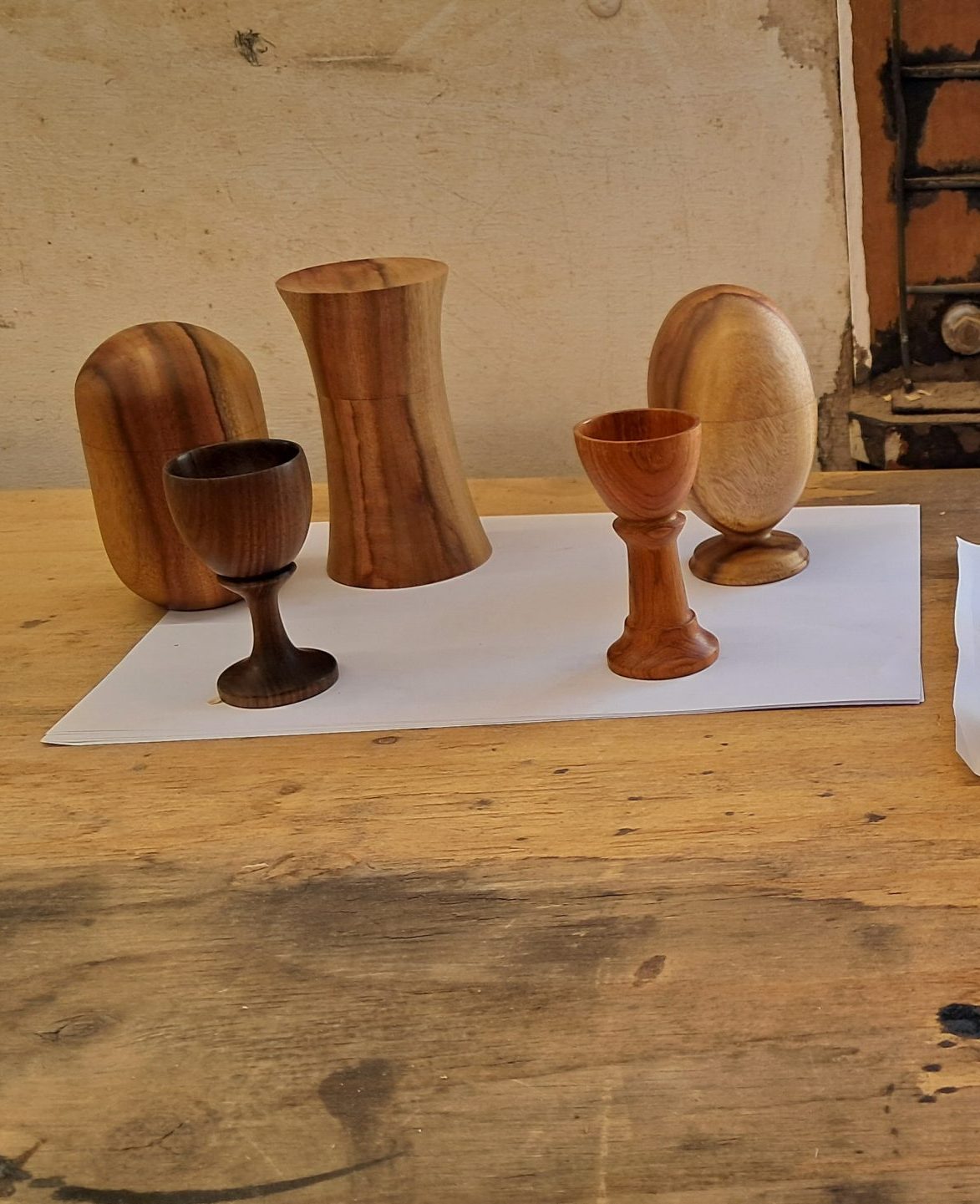
This course is designed for students looking to deepen their expertise in end grain hollowing, with a focus on projects where the wood grain runs parallel to the lathe’s axis. Building on foundational knowledge gained in Module 1, participants will learn advanced techniques necessary for the successful turning of eggcups, vases, goblets, and intricate wooden boxes. The curriculum provides detailed instruction on the selection and safe use of specialized tools for end grain cutting, as well as the creation and application of internal templates to achieve precise, repeatable forms. Throughout, students will gain insight into problem-solving challenges that are unique to hollowing end grain, such as managing grain tear-out and achieving smooth interior surfaces.
A significant component of the course emphasizes the creative and aesthetic aspects of box making, guiding students to explore both traditional and innovative designs. Hands-on projects will encourage experimentation with form, proportion, and surface detailing, allowing each participant to develop their own sense of style while mastering functional skills. By the end of the course, students will have produced a collection of finely crafted articles and developed a solid understanding of the specialized techniques required for successful end grain hollowing. Successful completion of “Module 1: Introduction to Woodturning” is required for enrollment, ensuring that all students begin with the core skills necessary for safe and effective participation in this advanced module.
Module 5: Kit Projects -2 Day Course
Learn to turn small timber pieces into practical, personalized gifts using a variety of woodturning kits such as pens, clocks, and grinders. This hands-on course covers essential equipment, techniques, and finishing tips, and requires completion of the Introduction to Woodturning module.
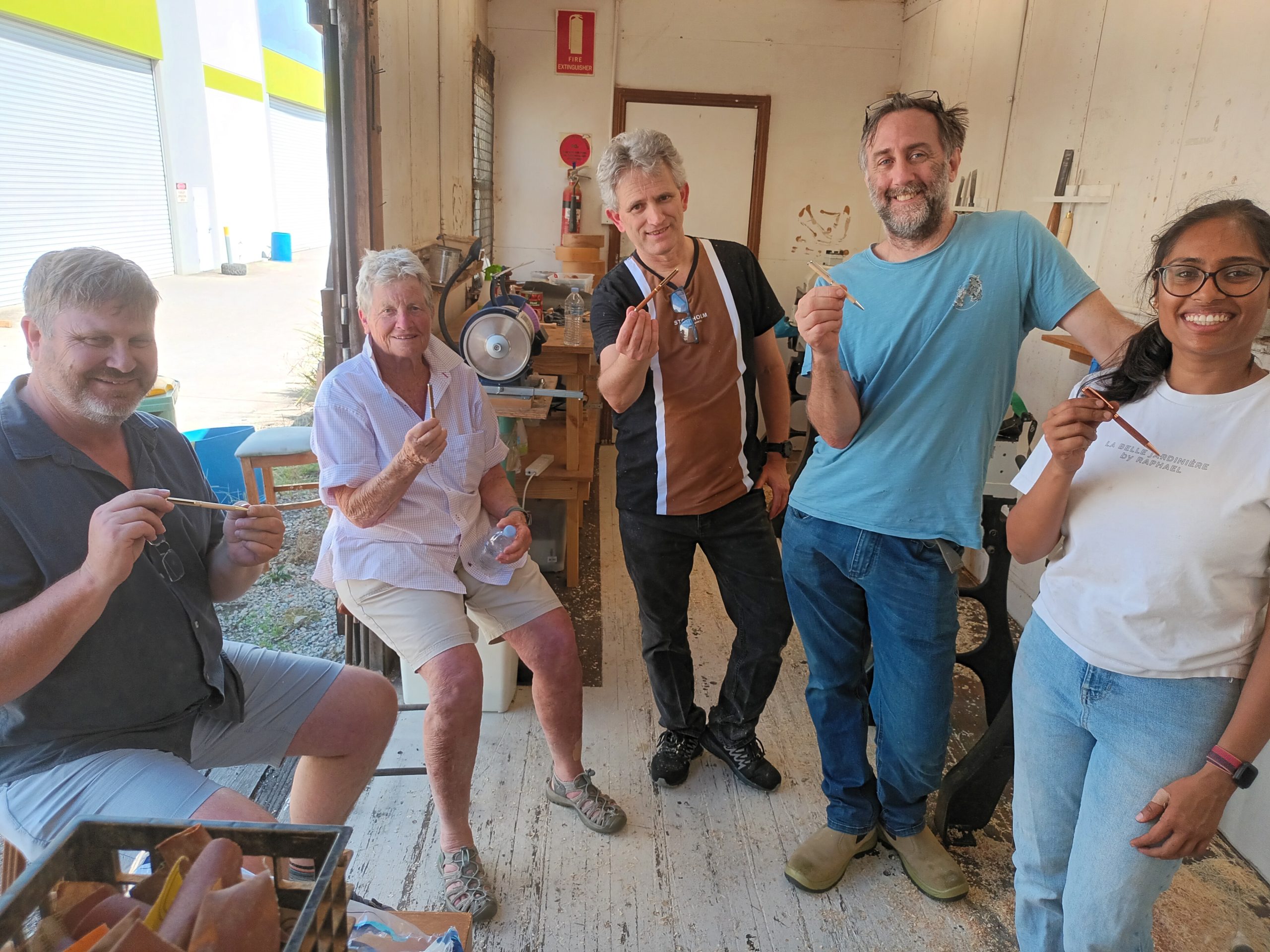
Turn small pieces of beautiful timber into unique, practical items perfect for custom gifts. In this course, students will be introduced to a range of woodturning kits—such as pens, letter openers, pepper grinders, wall clocks, wine stoppers, and others depending on kit availability.
You will learn:
-
How to select and prepare timber for different kits
-
Safe and effective use of woodturning equipment
-
Key assembly and finishing techniques for professional results
-
Insider tips for best outcomes
Prerequisite: Completion of Module 1: Introduction to Woodturning
All tools, kits, and safety gear are provided. By the end of the course, you’ll have created several finished pieces and built core skills in turning kit-based projects.
Module 6: Advanced Woodturning Techniques - 2 Day Course
This advanced module is for turners who have completed at least two of the previous five modules (including Module 1) and want to expand their skills with more creative projects. You’ll tackle challenging pieces such as a turned spoon, multi-sided tool handle, carved-footed bowl, multi-axis candle holder, and a fine stemmed goblet—including the use of string steadies and discussions on steady rests for complex work.
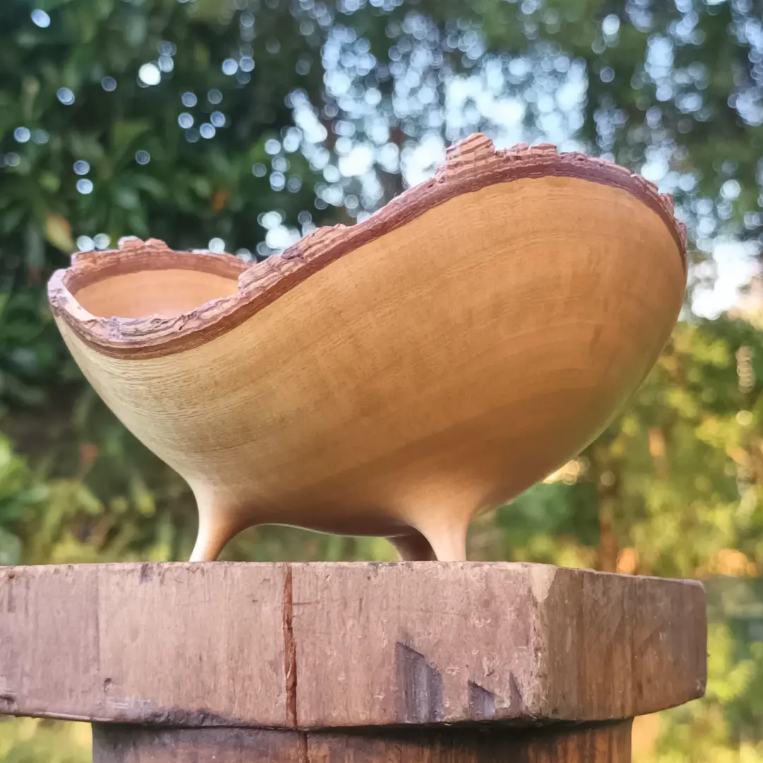
This advanced woodturning module welcomes turners who have completed at least two of the previous five modules (including Module 1) and are ready to expand their skillset. It’s designed for those with basic woodturning experience, focusing on innovative techniques and creative exploration.
Participants will tackle a series of engaging projects, including:
-
Spoon Turning: Learn to combine lathe work with hand-carving to create elegant spoons, utilizing both spindle turning and detailed shaping methods for functional art pieces.
-
Multi-Sided Tool Handle: Build handles that feature complex profiles, mastering the lathe techniques required for symmetry, ergonomics, and finish quality.
-
Bowl with Carved Feet: Turn and then carve bowls with distinctive feet, blending traditional bowl turning with decorative carving for one-of-a-kind results.
-
Multi-Axis Candle Holder: Discover eccentric and multi-axis turning, exploring how to offset the workpiece to produce sculptural candle holders with dynamic forms.
-
Fine Stemmed Goblet: Craft delicate goblets with long, slender stems, and learn to make and use a string steady to support ultra-thin turnings. The module also introduces steady rests—devices that stabilize long, unsupported work—for safe and precise hollowing.
Throughout, the course encourages students to move beyond basic concepts, experimenting with new techniques and developing a personal, creative approach to their woodturning. Discussions and hands-on practice will equip you with advanced problem-solving strategies, deeper technical knowledge, and greater confidence for tackling ambitious projects. This module is an ideal launching pad for turners aiming to broaden both their technical abilities and artistic vision.
Module 7: Sharpening Skills - One Day Course
Sharp tools are vital for both quality woodturning and safety, making proper sharpening essential. In this module, you’ll learn proven sharpening techniques for various woodworking tools—including gouges, chisels, and scrapers—using grinders, hones, and jigs, with no prerequisite courses required.
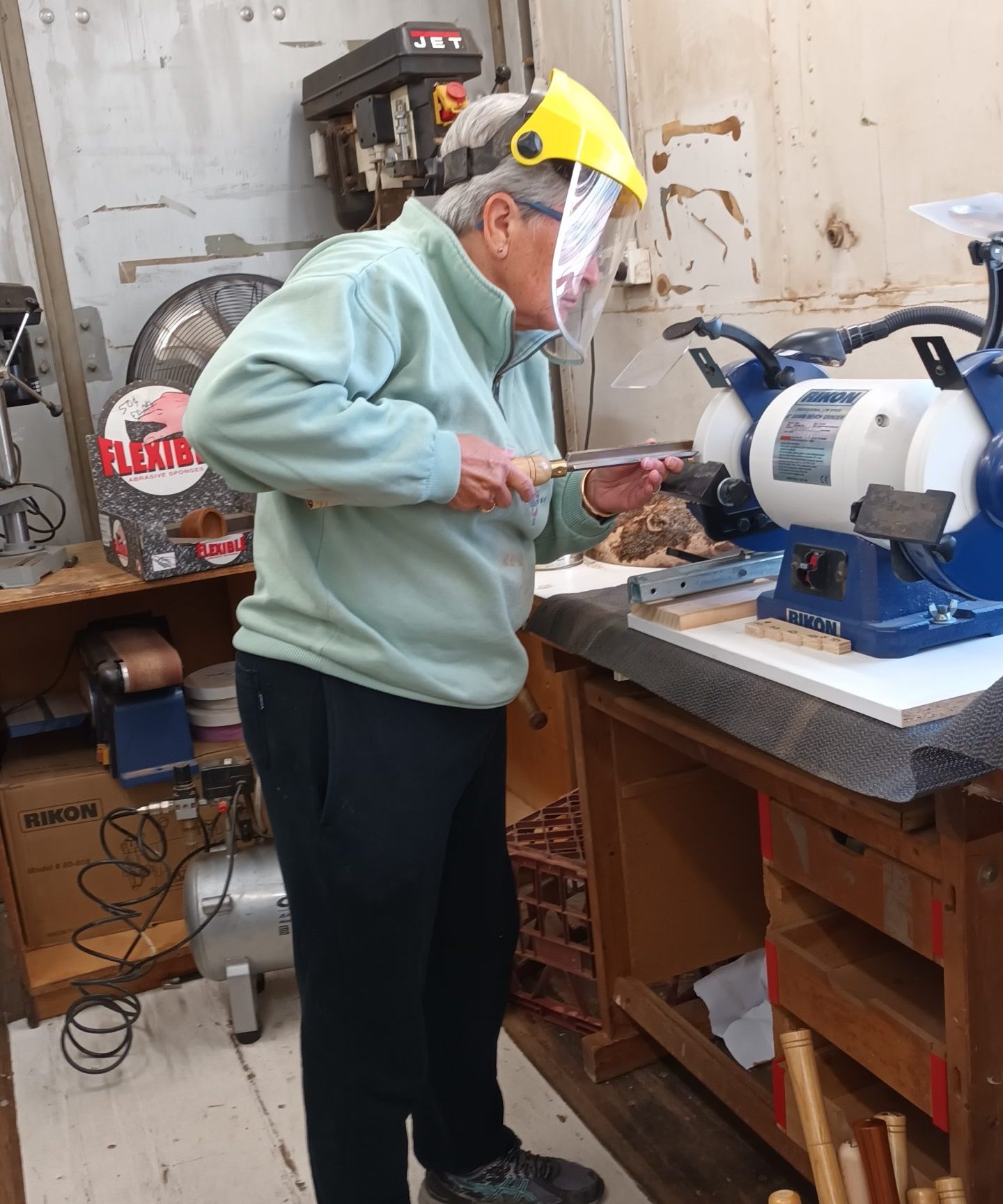
Sharp, well-maintained tools are crucial for both effective and safe woodturning. Dull edges not only make turning more difficult but also increase the risk of accidents or damage to your workpiece.
In this module, students will learn professional techniques for sharpening woodturning tools, helping you achieve consistently sharp edges with repeatable results. The skills taught apply broadly and can be used for woodworking tools beyond turning.
We’ll cover essential equipment—including grinders, wheels, hones, and jigs—as well as the best bevel angles and profiles for different tools. Students will practice both freehand and jig-based sharpening methods for a range of tools: gouges, chisels, parting tools, and both neutral and negative rake scrapers.
If you have your own tools, bring them along to sharpen during class—so you’ll leave with a set of razor-sharp, ready-to-use tools.
Please note: This module is open to all and does not require completion of “Module 1: Introduction to Woodturning.”
Module 8: Beginner Woodcarving - 2 Day Course
This beginner-friendly course introduces the essentials of wood carving, covering carving styles, tools, sharpening, design transfer, and suitable timbers. With hands-on lessons in whittling, chip carving, and low relief carving using four basic tools, students gain the confidence and foundational skills needed to start their own carving projects.
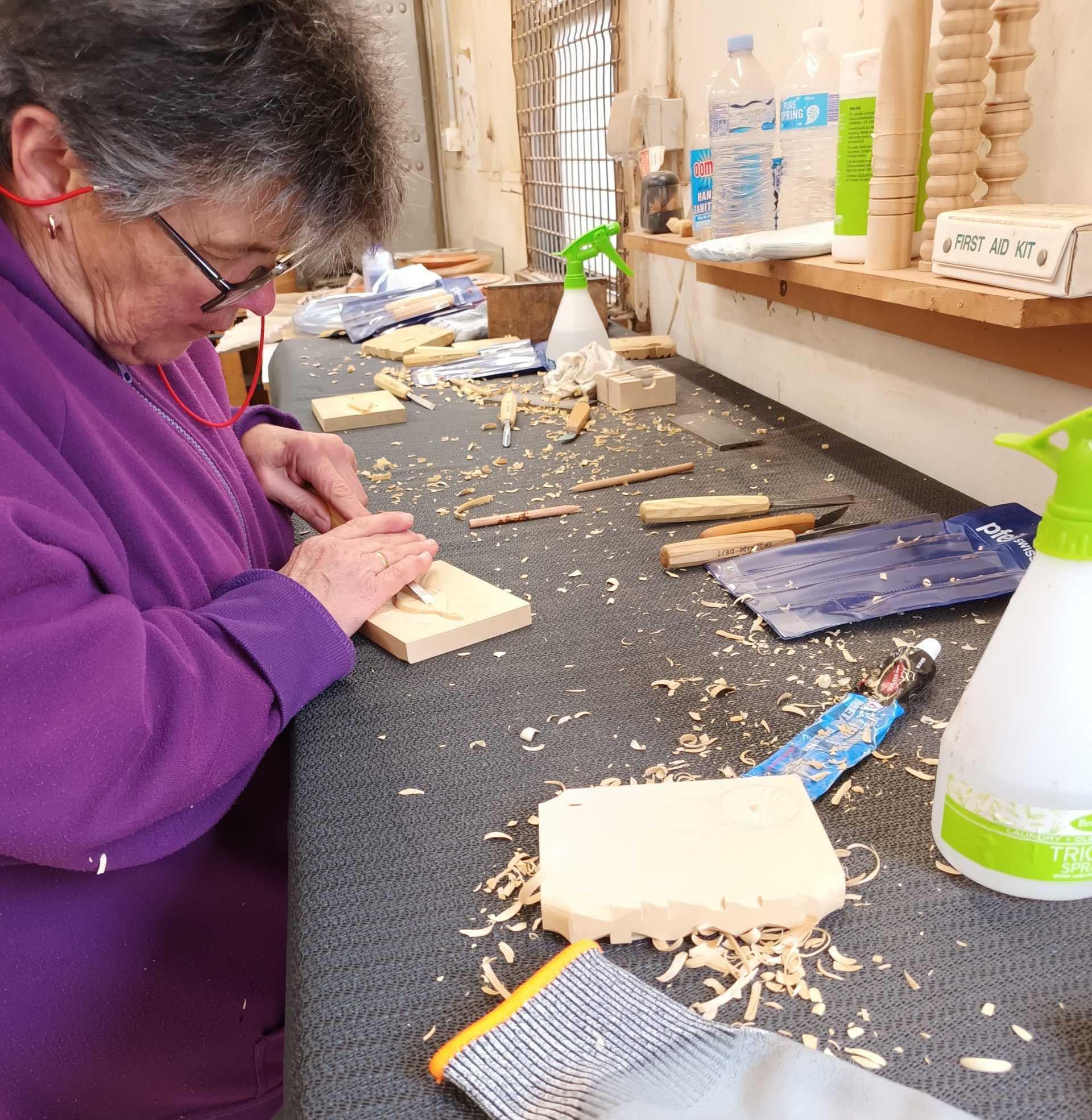
This comprehensive beginner-friendly course is designed to make wood carving approachable and enjoyable for those new to the craft. Students will be introduced to foundational carving styles, essential tools, sharpening techniques, design transfer methods, and work-holding strategies, ensuring a well-rounded understanding from the start. Through detailed, step-by-step instruction in whittling, chip carving, and low relief carving, you’ll develop fundamental cutting and tool control skills, all while using just four carefully selected carving tools. The course also covers how to select suitable timbers for carving, giving participants practical knowledge to choose the right materials for future projects and complete each workshop piece successfully.
No prerequisite courses are required for this module, making it perfect for absolute beginners eager to explore wood carving with confidence.


